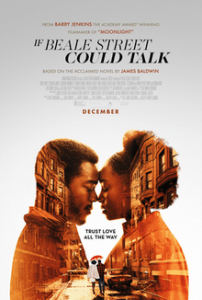
If Beale Street Could Talk
In the seventies, in the Harlem quariere, the 19-year-old Tish waits for a child with the love of her life, her boyfriend Fonny. But he will have to tell him through a glass, because Fonny was imprisoned for a crime he did not commit. There is a white policeman in the middle and winning the truth is an increasingly difficult and expensive undertaking. But Tish does not give up and her family is with her.
After winning the Oscar with Moonlight, Barry Jenkins brings to the screen one of James Baldwin’s best known and most popular books, “If Beale Street Could Talk”.
A novel written after the assassinations of Malcolm X and Martin Luther King and so imbued with all the disillusionment and anger that that historical moment could inspire in the African American community and beyond, and yet a romance full of love. Jenkins on the screen tries to do the same, mixing two time plans close to each other but far away for emotional temperature, to tell a lot of youthful passion and desire for the future as well as the injustice of being part of a part of the population pushed in every way to live in fear.
Jenkins resorts very much to the use of the first and the first floor, for all his characters and not only for the scenes that contemplate the two protagonists. In some cases, as for Fonny’s mother or the friend who was released from prison, the first floor tells something that goes beyond words, in an area of psychological unknowability, of trauma, but most of the time, that extreme proximity tells the sincerity of the character, the transparency of his soul, love in his look. So, even if not everything in the film has the same level of intensity, we are captivated by the request for attention directed by us, as well as by the details, long sequences of dialogue, in which music plays a fundamental role.








